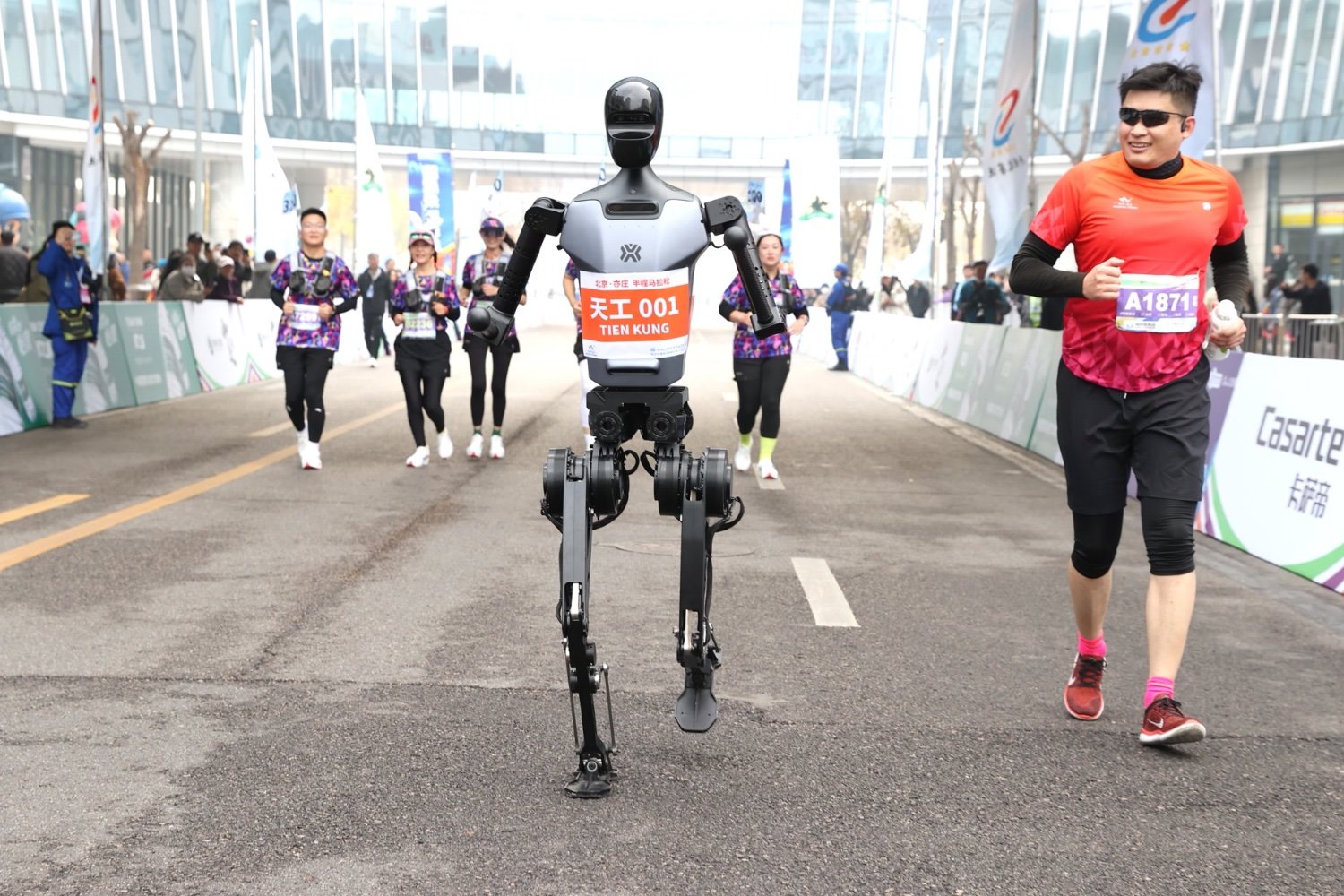Who said half-marathons should only run between humans? This is what will happen in Beijing next April in the Daxing District. Over the 21 kilometers of the course, around twenty humanoid robots will be aligned alongside 12,000 human runners. These machines, from research laboratories and specialized companies, promise to add a science fiction dose to this sporting event.
Robots in sneakers
The rules for participating robots are strict: they must look like humans and be able to walk or run on two legs. No question of cheating with wheels! Their size will have to be between 50 cm and 2 meters, and they can be remote controlled or operate independently. In case of fatigue, their batteries can be replaced along the way.
Twitter-tweet” data-width=”500″ data-dnt=”true”>
At the Beijing Yizhuang Half #Marathon on the morning of Nov. 10, the #Beijing humanoid #robot “Tiangong” entered the racecourse and crossed the finish line alongside the runners. #funinbeijing pic.twitter.com/DQM1zjxneK
– Beijing daily (@Dailybeijing) November 10, 2024
This is not the first time that a robot has appeared in a sports competition in China. Last year, a humanoid baptized Tiangong made a brief appearance in another half-marathon in Beijing, crossing the finish line after traveling 100 meters. But this time, the robots will run a complete half-marathon, a damn ambitious challenge for these metal athletes.
If this race may seem to be a simple stroke of com ‘, it is part of a much wider strategy. China relies greatly on advances in robotics and artificial intelligence to strengthen its economy and compete with the United States. In recent years, humanoid robots have been deployed in factories, in particular to make electric vehicles, but also in retirement homes to support the elderly.
With an aging population-22 % of Chinese are today over 60 years old-and a continuous drop in the birth rate, the country sees robotics a solution to overcome the lack of labor. In 2023, China installed more than half of industrial robots worldwide, according to the International Robotics Federation.
The Daxing half-marathon, organized by the Economic and Technological Zone of Beijing (E-Town), is a way to promote these efforts. And this is only the beginning: next August, the city plans to organize a competition exclusively reserved for robots, with athletics, football and other demonstrations of their capacities.
This kind of initiatives could also speed up innovation among tech giants. Tesla, for example, plans to launch its own humanoid robot by the end of 2025. It remains to be seen whether these machines can one day equal, even surpass, human performance. In the meantime, the April race promises an outgoing show, and a small dose of humor by seeing robots and humans sweat together on the starting line.
🟣 To not miss any news on the Geek Journal, subscribe to Google News. And if you love us, .









